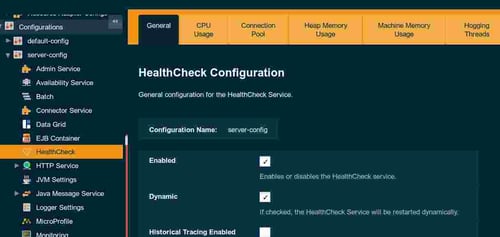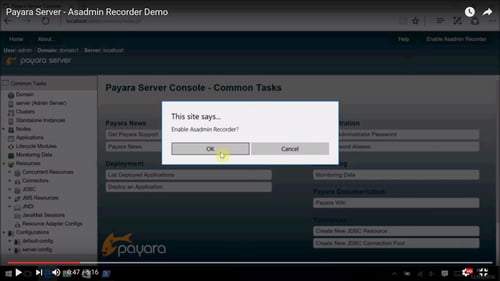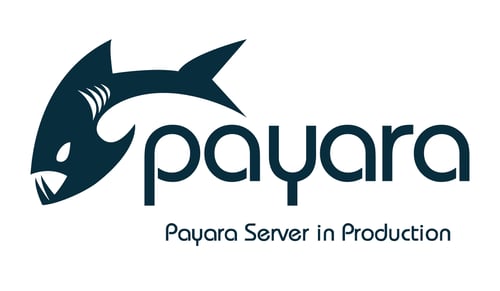Posts tagged Ops Teams
You don’t need to be in the money to be in the cloud
Published on 28 Aug 2024
by Chiara Civardi
Topics:
Ops Teams,
Cloud,
DevOps,
Developer,
Payara Cloud
|
0 Comments
Cloud computing is becoming the norm for enterprise-level applications, offering forward-looking businesses a wealth of benefits – reduced operational costs being one of them. However, cloud infrastructure expenditure can quickly spiral out of control, if managed incorrectly. By following a few, simple guidelines, companies can maximize the advantages of the cloud, including revenue, with limited, value-adding investments.
Ensuring Seamless Operations and Maximum Profitability: Key Insights on Application Server Efficiency and SLAs - Part 2
Published on 12 Aug 2024
by Chiara Civardi
Topics:
Ops Teams,
Upgrade,
DevOps,
Monitoring,
Developer,
Payara Support,
Migration,
Payara InSight,
deployment group,
service
|
0 Comments
Robust and efficient application servers are crucial for companies relying on software applications, whether supporting e-commerce platforms, financial services portals, or internal operations. To ensure smooth operations and deliver seamless services to users, it's essential to partner with vendors who can provide a system runtime that offers maximum uptime. This reduces costs and optimizes performance, profitability, and user satisfaction. Effective service level agreements (SLAs) with these vendors play a key role in minimizing disruptions and ensuring that your applications run efficiently and reliably.
In this blog post, we share insights from industry players on what to look for in application runtime SLAs to minimize disruptions.
Ensuring Seamless Operations and Maximum Profitability: Key Insights on Application Server Efficiency and SLAs - Part 1
Published on 18 Jul 2024
by Chiara Civardi
Topics:
Ops Teams,
Upgrade,
DevOps,
Monitoring,
Developer,
Payara Support,
Migration,
diagnostics
|
0 Comments
Robust and efficient application servers are essential for companies relying on software applications, whether these support e-commerce platforms, financial services portals or internal operations. To help ensure smooth operations, deliver seamless services to users and generate revenue, it’s important that the runtime in place can offer maximum uptime to reduce cost while optimizing performance, profitability and user satisfaction.
In this blog post, we share insights from industry players on the impact of unexpected application server issues and downtime as well as how to reduce them.
The Health Check Service In-Depth - Payara Server 5
Published on 16 Oct 2019
by Ondro Mihályi
Topics:
What's New,
Ops Teams,
How-to,
Healthcheck,
Security,
DevOps,
Monitoring,
Payara Server 5,
Notifier
|
4 Comments
This is an updated blog of the original which was published in May 2016
Payara Server provides the Health Check Service for automatic self-monitoring in order to detect future problems as soon as possible. When enabled, the Health Check Service periodically checks some low level metrics. Whenever it detects that a threshold is not met, it triggers alert notifications that allow to detect undesired behavior and predict possible failures. All of these automatic checks are very lightweight and run with a negligible impact on performance.
The HealthCheck Service In-Depth - Payara Micro
Published on 14 Jun 2016
by Ondro Mihályi
Topics:
What's New,
Payara Micro,
Microservices,
Ops Teams,
Healthcheck,
DevOps
|
1 Comment
The HealthCheck Service provides automatic self-monitoring in order to detect future problems as soon as possible. The HealthCheck Service was introduced in Payara Server and Payara Micro version 161 and some new metrics have been added in version 162.
All the functionality of the HealthCheck Service that is available in Payara Server is also included in Payara Micro. However, as Payara Micro differs in some concepts from Payara Server, the usage and configuration of the HealthCheck Service is slightly different. In this post, we will focus on how to use it in Payara Micro.
Asadmin Recorder - New Payara Server Feature Demo
Published on 13 May 2016
by Andrew Pielage
Topics:
What's New,
Ops Teams,
How-to,
Admin,
DevOps
|
4 Comments
One of the most exciting new features in the Payara Server 162 release is the Asadmin Recorder - a tool especially useful for the Operations Teams!
Asadmin Recorder allows you to create runnable scripts of asadmin commands that mirror configuration done in the administration console. Have a look at our video walkthrough below for a quick overview of this new Payara Server feature.
Using Payara Server in Production - Guide
Published on 11 May 2016
by Steve Millidge
Topics:
Production Features,
Ops Teams,
DevOps
|
0 Comments
Once you have developed applications on Payara Server and moved these applications into a production environment, control will pass over to your Operations Teams. This guide will introduce some features of Payara Server that you may not know about, which are especially useful for the operations teams.
Automating Production in Payara Server
Published on 25 Apr 2016
by Mike Croft
Topics:
Production Features,
Docker,
Ops Teams,
DevOps
|
1 Comment
Taking an environment from development through to production is often an afterthought and can all too often be too far down the list of priorities. Initially, there may not be any obvious problems or issues with manually configuring a new production environment to match an existing one in development or test. As some customers I have visited have found, however, this will only lead to bigger and bigger inconsistency between platforms with ad-hoc changes causing different environments to diverge.
Troubleshooting your Java EE Applications
Published on 22 Mar 2016
by Mike Croft
Topics:
Java EE,
Ops Teams,
How-to,
Healthcheck,
Payara Server 5
|
0 Comments
Flexible HA & Scalability Architectures with Payara Server
Published on 08 Feb 2016
by Steve Millidge
Topics:
Production Features,
Payara Micro,
Hazelcast,
Caching,
Clustering,
Ops Teams,
Scalability
|
3 Comments
One of the lesser known features and key benefits of Payara Server is that it provides huge flexibility when architecting topologies for High Availability and Scalability. Utilising the embedded Hazelcast Data Grid for web session and JCache clustering brings the potential of many different topologies for scale out.









